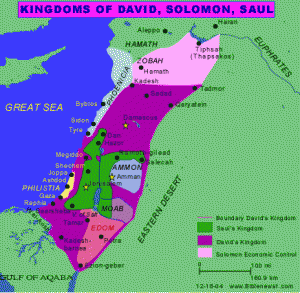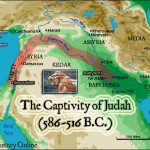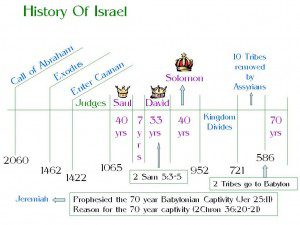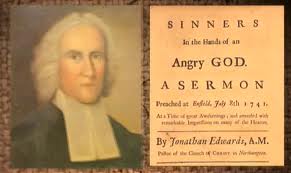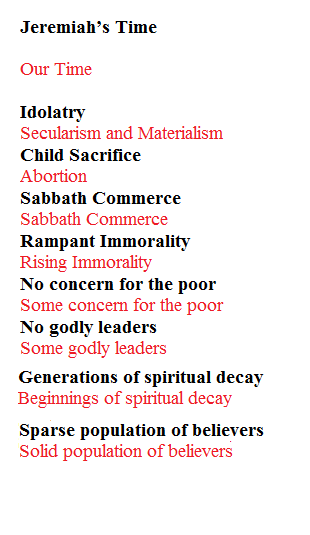Lamentations 4
How the gold has grown dim,
how the pure gold is changed!
11 The Lord gave full vent to his wrath;
he poured out his hot anger,
and he kindled a fire in Zion
that consumed its foundations.
12 The kings of the earth did not believe,
nor any of the inhabitants of the world,
that foe or enemy could enter
the gates of Jerusalem.
Yet we have forgotten…
So typically, history is re-told by those who need to tell a story different from that which is witnessed.
False prophets and false advisers appear to tell leaders and the people what cannot happen and also what did not happen.
The 10 Things You Didn’t Know About the War of 1812
(More on this forgotten history in a moment)
Jeremiah had warned Judah what would happen. Judah’s leaders had listened to false tale of the fate of Israel and what they wanted to hear about the truth of their own inevitable fate. God had given Jeremiah the truth. Judah would not hear.
13 This was for the sins of her prophets
and the iniquities of her priests,
who shed in the midst of her
the blood of the righteous.
14 They wandered, blind, through the streets;
they were so defiled with blood
that no one was able to touch
their garments.
17 Our eyes failed, ever watching
vainly for help;
in our watching we watched
for a nation which could not save.
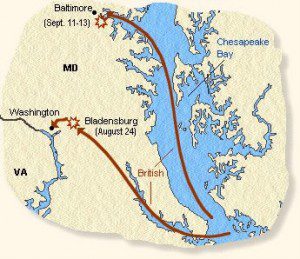 In reality, it lasted 32 months following the U.S. declaration of war on Britain in June 1812. That’s longer than the Mexican-American War, Spanish-American War, and U.S. involvement in World War I.
In reality, it lasted 32 months following the U.S. declaration of war on Britain in June 1812. That’s longer than the Mexican-American War, Spanish-American War, and U.S. involvement in World War I.
IF you even recall anything about a war with the BIG STAR SPANGLED BANNER (flag), first remember historically that the attacks on Washington DC and Baltimore were in 1814.
An issue that could place the young nation as the aggrieved party could help; of the 19 senators who passed the declaration of war, only three were from New England and none of them were Federalists.
8. There Was Almost a United States of New England
The political tension persisted as the war progressed, culminating with the Hartford Convention, a meeting of New England dissidents who seriously flirted with the idea of seceding from the United States. They rarely used the terms “secession” or “disunion,” however, as they viewed it as merely a separation of two sovereign states.
For much of the preceding 15 years, Federalist plans for disunion ebbed and flowed with their party’s political fortunes. After their rival Thomas Jefferson won the presidency in 1800, they grumbled sporadically about seceding, but mostly when Jefferson took actions they didn’t appreciate (and, worse, when the electorate agreed with him). The Louisiana Purchase, they protested, was unconstitutional; the Embargo Act of 1807, they said, devastated the New England shipping industry. Electoral victories in 1808 silenced chatter of disunion, but the War of 1812 reignited those passions.
(Returning to Jeremiah’s lament for Judah…)
19 Our pursuers were swifter
than the eagles in the heavens;
they chased us on the mountains;
they lay in wait for us in the wilderness.
20 The breath of our nostrils, the Lord’s anointed,
was captured in their pits,
of whom we said, “Under his shadow
we shall live among the nations.”
The Napoleonic Wars in Europe 200 years ago between England and a France under the control of the Emperor who had overthrown the young leadership of the French Revolution spilled into far-reaching places like Haiti, Canada and Louisiana. In a sense, the 13 colonies of the US were surrounded by Europe. Spain still owned Florida. France owned Louisiana and England ruled Canada. British, French, Spanish and Dutch all ruled parts of the Caribbean.
An honest look at a history 200 years ago should not overlook the warnings of those who represent God, rather than the powers of the present which will fade into the past.
Judah, at the time of Lamentations or even prior to the fall of Jerusalem could have looked back with honesty to the warnings of the Prophets of Almighty God.
605-586 BC – LOOKING BACK two centuries
- 627 BC – 580 BC Jeremiah as Prophet
- 586 BC – Jerusalem fell to Babylon, but it was falling for 19 years.
- 605 BC – First defeat of Jerusalem
- 609 BC – Jehoiakim, King of Judah
King Jehoiakim, 18th sovereign of the separate kingdom of Judah, enjoys the dubious distinction of being the first sovereign of Israelites placed on the throne by a foreign power. When Judah was conquered and King Josiah killed in battle by Egypt, Josiah’s son, Jehoiakim’s younger brother Jehoahaz, took Josiah’s office as king. However, the Egyptian king found Jehoahaz rebellious, refusing to pay the tribute he imposed. So he dethroned him, placing Jehoiakim in power, and giving him that name in place of his original name, Eliakim, as a symbol of Egypt’s power over the king of Judah. Jehoiakim paid the tribute, initiating a new tax to fund it. 2 Chronicles 36:4
Jeremiah 19:3 You shall say, ‘Hear the word of the Lord, O kings of Judah and inhabitants of Jerusalem. Thus says the Lord of hosts, the God of Israel: Behold, I am bringing such disaster upon this place that the ears of everyone who hears of it will tingle. 4 Because the people have forsaken me and have profaned this place by making offerings in it to other gods whom neither they nor their fathers nor the kings of Judah have known; and because they have filled this place with the blood of innocents, 5 and have built the high places of Baal to burn their sons in the fire as burnt offerings to Baal, which I did not command or decree, nor did it come into my mind— 6 therefore, behold, days are coming, declares the Lord, when this place shall no more be called Topheth, or the Valley of the Son of Hinnom, but the Valley of Slaughter.7 And in this place I will make void the plans of Judah and Jerusalem, and will cause their people to fall by the sword before their enemies, and by the hand of those who seek their life.
- 642 BC – Amon, King of Judah
2 Chronicles 33: 21 Amon was twenty-two years old when he began to reign, and he reigned two years in Jerusalem.22 And he did what was evil in the sight of the Lord, as Manasseh his father had done.
- 697 BC – Manasseh, King of Judah
- 722 BC – Fall of the Northern Kingdom of Israel to Assyria
- 728 BC – Hezekiah, King of Judah
- 732 BC – Hoshea, Last King of Israel (Northern Kingdom)
- 740 BC- 685 BC – Isaiah as Prophet
- 740 BC – Pekah, King of Israel
- 742 BC – Pekahiah, King of Israel
- 743 BC – Ahaz, King of Judah
- 750 BC – Jotham, King of Judah
- 752 BC – Menahem, King of Israel
- 752 BC – Shallum, King of Israel
- 753 BC – Zechariah, King of Israel
- 760 BC – 750 BC – Amos as Prophet
- 792 BC – 740 BC Uzziah (Azariah), King of Judah
- 793 BC – 753 BC – Jeroboam II, King of Israel
Why all this history?
What do you know of U.S. History 200 years ago? (1813) Who was president? Who was Speaker of the House? What did our leaders do to get us to today? Has US history been “re-branded?”
Perhaps you can name an occasional President who “did what was good in the sight of the Lord.”
READ your Bible and you will see that MOST the long list of forgotten leaders had done “what was evil in the sight of the Lord.” God remembers evil. God remembers good. God IS before all history and God IS after all history. God IS.
The Prophets do warn: In God we once trusted.

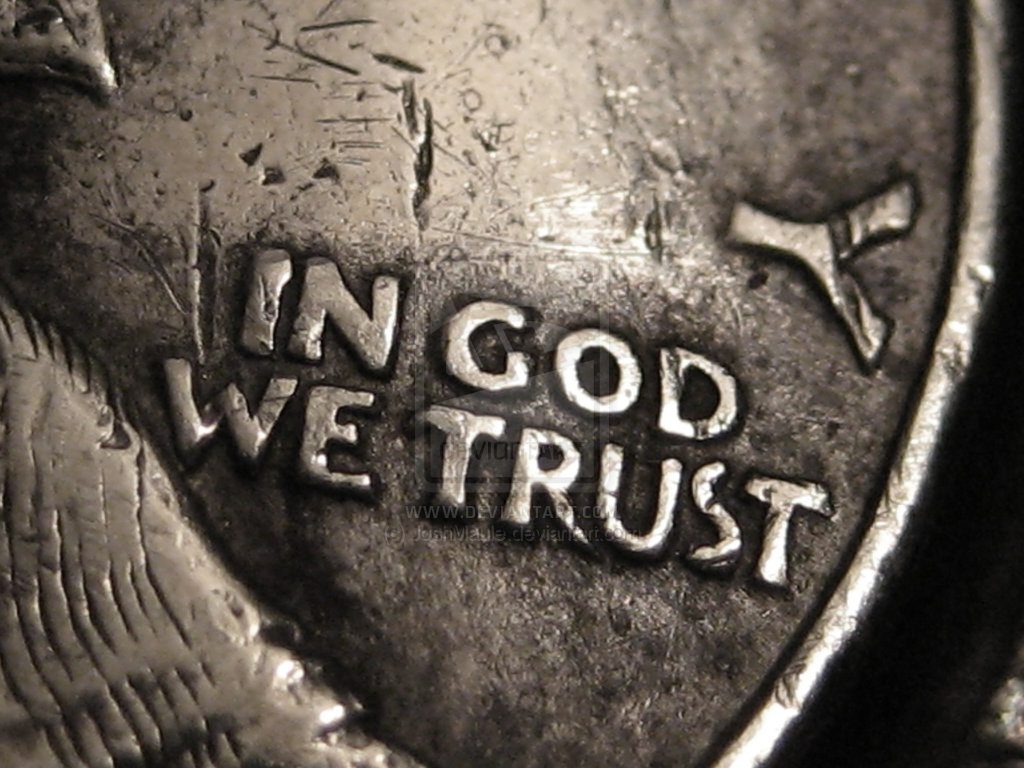
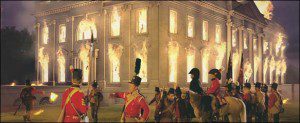
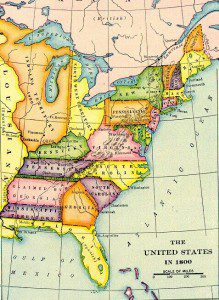
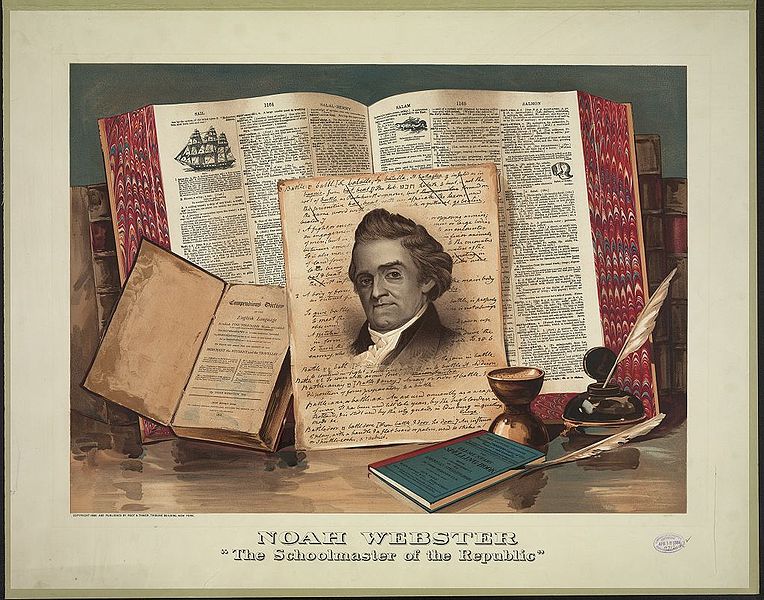
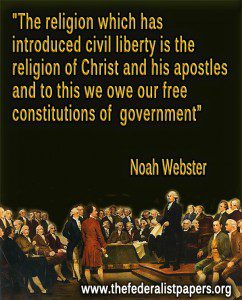
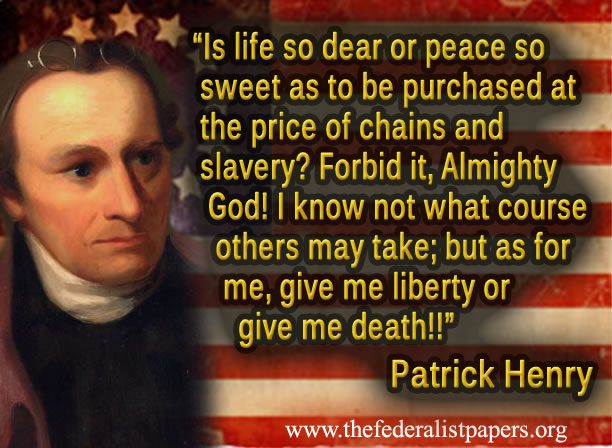 Has our history revealed the truth of the complete plea to God of Patrick Henry…
Has our history revealed the truth of the complete plea to God of Patrick Henry…